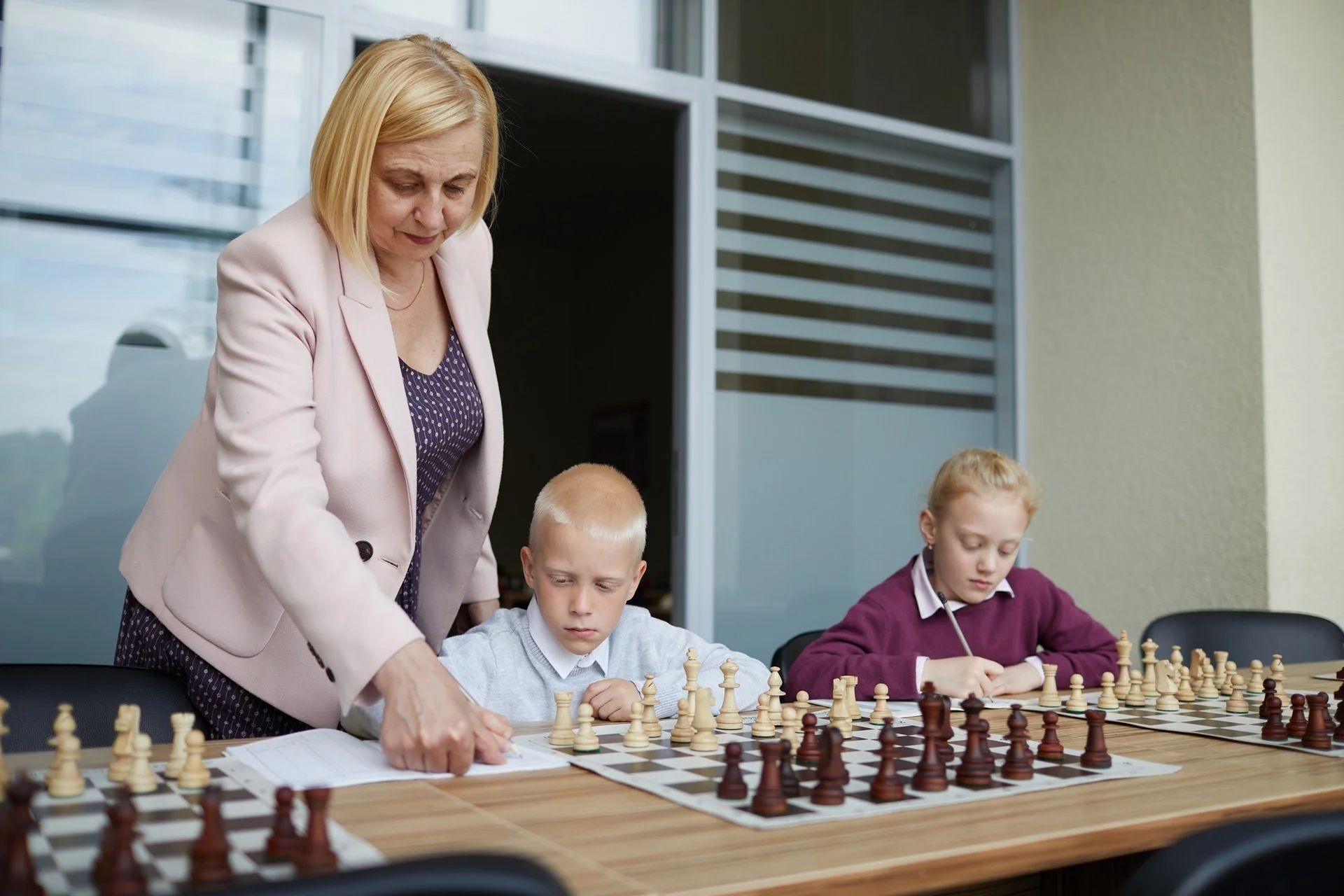Elevate Your Game: How Structured Chess Training Can Sharpen Your Mind
Chess is often celebrated as a game that sharpens the mind, and for good reason. At the United States Chess Academy, we've seen firsthand how structured chess training can significantly enhance a player's mental agility and strategic thinking. But what makes chess training so effective? It's more than just learning to move the pieces; it involves deepening understanding, honing skills, and applying these lessons not just on the board but in everyday life.
For someone new to the game or even seasoned players looking to improve, structured chess training provides a roadmap to becoming a more thoughtful and proficient player. By adopting a disciplined approach to learning and practicing chess, our participants gain more than just expertise in a game; they develop a set of skills that can benefit them in various aspects of life. From improving memory and problem-solving abilities to enhancing strategic thinking and patience, the benefits of this age-old game are far-reaching. As we explore these themes, we invite you to consider how embracing structured chess training might not just change how you play the game, but also how you think and tackle challenges every day.
Understanding the Benefits of Structured Chess Training
Structured chess training goes beyond casual play; it's about learning the game deeply and systematically. One of the key benefits we observe is the enhancement of critical thinking skills. When our students engage in structured practice, they learn not only to react to their opponent's moves but also to foresee and plan several moves ahead. This kind of forward-thinking encourages them to assess situations logically and make more calculated decisions.
Moreover, the discipline of regular training sessions boosts concentration and focus. Chess requires a high level of attention to detail and attentiveness to the game’s complexity. Through structured training, players develop the ability to concentrate deeply, an invaluable skill both at the chessboard and in daily life. We also see significant improvements in patience and perseverance among our trainees. As players learn to anticipate and withstand the strategies of their opponents, they acquire a greater capacity to endure and overcome challenging situations.
Core Elements of a Comprehensive Chess Training Program
A well-rounded chess training program is key to developing skilled players who can think independently and creatively. Our comprehensive program consists of several core elements that are crucial for effective learning. First, we provide theory sessions where players learn about different strategies, openings, and endgames. Understanding the theoretical aspects of chess sets a strong foundation for practical playing.
Second, practical gameplay is central to our training. Regularly playing games against varied opponents allows players to apply what they have learned in theory. Also important are our review and analysis sessions. Here, we replay games and pinpoint key moves and turning points. This retrospection helps players learn from their mistakes and successes, refining their strategies for future games.
Lastly, we integrate mental fitness exercises into our routines. Just as physical athletes must condition their bodies, chess players must train their minds. Activities that enhance memory, boost problem-solving skills, and encourage quick thinking are integral to our program. These exercises ensure that our players are mentally agile and prepared to tackle any challenge on the board. Through these foundational elements, we cultivate not just chess players, but chess thinkers and leaders.
Cognitive Enhancements Through Regular Chess Practice
Regular chess practice does more than just improve our game strategies; it significantly enhances various cognitive abilities. One of the key mental upgrades we notice in our students is an improvement in memory. Chess players often have to remember numerous game patterns and opponent tendencies, which bulks up brain functions related to short-term and long-term memory recall.
Another cognitive boost comes from enhanced problem-solving skills. Each chess match is a new puzzle with countless solutions depending on the moves of the opponent. Players learn to analyze complex situations under game pressure, a skill that directly translates to solving problems quickly and efficiently in real-world scenarios. Moreover, regular practice sharpens decision-making abilities, as players must constantly make decisions that could either benefit or jeopardize their standing in the game.
Utilizing Chess Training to Excel Beyond the Board
Chess isn't just a game played on a checkered board; it's a comprehensive training regime that prepares individuals for complex challenges in various aspects of life. We see in our community that individuals who engage deeply with chess often carry the benefits over into their academic, professional, and personal lives. For example, the strategic thinking learned through chess can lead to better planning and foresight in business decisions or academic research projects.
Furthermore, the discipline and patience cultivated from persistent chess training develop traits that are ideal for leadership roles. Those accustomed to the complexities of chess tactics tend to be more composed and adaptable in stressful situations—qualities that are essential in leadership. Encouraging young players to apply these skills beyond the game fosters a preparedness for unexpected challenges they'll encounter in life.
Conclusion
At the United States Chess Academy, we believe deeply in the power of chess to enhance mental acuity and cultivate skills that extend far beyond the board. Our structured chess training program is designed not just to refine the tactical skills of players but also to enable them to navigate the complexities of life more effectively. Through our comprehensive curriculum and dedicated coaching, we help players of all ages recognize patterns, anticipate consequences, and think several steps ahead in all their endeavors.
If you're ready to unlock your potential both on the board and in life, join us at the United States Chess Academy. Here, we're not just playing games; we're building brighter futures, one move at a time.

